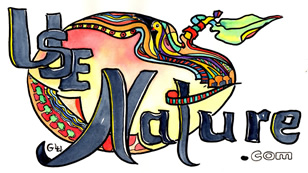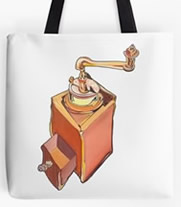useNature.com ... useNature Organic Gardening & Holistic Lifestyle
Organic Garden - Sustainable Gardening
Organic Gardening Hints & Tips
Organic & Biodynamic Gardening - Permaculture
useNature's Organic Gardening Project
... compiled by Dieter L. - Canungra - Gold Coast Hinterland
Find lots of Gardening Hints & Tips, and please share some of your own .... all published below ...
Gardening Hints - Tips & Companion Planting:
Who likes to dance with whom .... and ... a bit of natural pest control .. and ... lets see what else crops up ...
Sorted alphabetical ... Green indicates fixes - Red indicates a problem
| Aphis - Black Fly - Black Aphis - Attacking Broad Beans - Here is a good old herbal pest control .. pick lots of Stinging Nettle and let it ferment in an old bucket or drum of water for 3 weeks. First cut off the tops of the bean plants ( destroying the flies), after that spray with the fermented nettle liquid. It is also good for plant growth promotion, and generally protects most plants against diseases. |
Aromatic Herbs ... generally all aromatic Herbs are great in the Vegetable Garden, however care has to be taken which aromatic herbs you plant close together. Sweet Basil and Rue definitely don't like each other, with Basil being one of the sweetest and Rue one of the very bitter ones. |
Beans, easy to grow and to nice to eat. Beans are all nitrogen fixers of the soil, so they should be planted next to plants of the Brassica family, carrots, celery, chard, corn, cucumber, eggplant, peas, potatoes, radish and strawberries. Avoid planting near chives, garlic, leeks and onion (they don’t like them!). Beets and beans should also be avoided next to one another as they can stunt each others growth. Beans don't like the sulphur veggies, Onions, Garlic and Shallots. I have often planted Beans and Sweet corn together, not only do they like each other, but the beans can climb up on the corn. That's the climbing beans obviously, not the bush beans. Climbing beans are great as a windbreak for Corn. Corn in return is a good windbreak for bush beans. The beans add nitrogen to the soil, which is good for the corn, you can't lose :-) Beans don't like Fennel, I wonder if they don't like Dill either ? Interestingly, Bush beans and Strawberries like each other ... must be the colour the are attracted to ..
green and red, always a good combination ... anyhow they benefit each other with stronger growth. |
Borage is a herb easy to grow, and it will aid Strawberries. However keep the ratio low.... just a couple of plants to a bed of strawberry. By the way Borage may spread easily, watch that it doesn't take over. The Bees love the borage flowers, which is always good for the garden. Borage is also aiding Tomatoes and even helps to improve the taste of Tomatoes. By the way, both the flowers and the leaves are edible. Borage like all other herbs has medical properties as well. Borage tea may be used as a tonic, helps to recover from stress and will promote lactation. |
Cabbage has a bit of a sensitive nature and needs all the help it can get... Serious Vegetable gardeners even use Bio Dynamic Preparation 500 when transplanting cabbage seedling to help against club root. Before you transplant, dip the seedling into the solution, or if not available, make some cow manure liquid and dip seedling into that. By the way, don't grow cabbages into the same bed twice, use crop rotation. The whole cabbage family is helped by aromatic herbs and plants. Try some Sage, Dill, Camomile, Wormwood, Rosemary. Cabbage and Strawberries do not like each other. The biggest Cabbage pest is the "white cabbage butterfly", the same herbs just mentioned should help for that as well, but please, try this old trick. Place large pieces of eggshells around the garden beds, the Butterfly will think, that territory is occupied :-) ( Did I just say: " The Butterfly thinks" ) .. well here you have it... your Cabbages will be protected by an imaginary army of eggshells. ( China's terra cotta warriors are too busy ) |
| Comfrey - grow some for the compost heap, and chucks love it ... |
Camomile, everyone knows Camomile, but mainly as a tea for calming and digestive upsets, but it has many other functions. It is one of the plants used with the Bio-Dynamic Gardening Method as a compost plant. It aids many plants but only in a small ratio, planting too many chamomile plants has the opposite effect. Just have one plant in garden beds to help onions and cabbage. |
Caraway .. I only know that seeds help digestion of bread, that's way many breads contain caraway seeds... and the aromatic taste and smell. In the garden, Caraway dislikes Fennel. |
Carrots, to grow them, it needs a bit of preparation if the soil is very heavy. If you grow a lot, you may want to grow flax or soybeans to loosen the soil. Growing carrots help to grow peas. And Carrots grow well in companionship with lettuce, chives and radishes. If you have problems with the carrot fly, which can be a troublesome pest, try to grow some repellents around a carrot bed, such as; Onions, Leeks, and strong smelling herbs like Rosemary, Wormwood and Sage. If you store carrots, don't store them near apples, it makes carrots taste bitter. |
Epsom Salt: Epson salt is comprised of hydrated magnesium sulphate, a naturally occurring mineral. Good for the following: Tomatoes are prone to magnesium deficiency later in the growing seasons. Applications of Epsom salt will create more blooms, less blossom rot and tastier and more bountiful tomatoes. When planting, add one tablespoon of salt per hole before planting seeds or transplanting. Every two weeks mix one tablespoon in a three litres of water and spray plants with solution. - Will also work for peppers and chilies. Seed Germination ... Epsom Salt (Magnesium), helps seed germination and strengthens cell walls. Mix 1 tablespoon or two into soil at the bottom of each hole before dropping in seeds. Yellowing leaves are often caused by a magnesium deficiency. Try sprinkling one-tablespoon of Epsom salt around the soil of your plants once a month, or mix two tablespoon of epson salt into a 9 litre watering can and spray directly on leaves. Leaf curling may also be caused by a lack of magnesium, water the plant with the above mix of Epsom salt and water. Weed killer, mix two cups of Epsom salt with four litres of vinegar, add four tablespoons of liquid dishwasher and put mixture into spray bottle. Rose Booster: Epsom salts help roses produce larger blossoms in greater numbers, it makes colour richer, foliage darker and stronger plants. Note: It’s always advisable to do a soil test before applying nutrients to your garden soil. |
| Nasturtiums can be planted near Broccoli to help to keep aphis under control .. Nasturtiums are good for Citrus trees too ... and by the way, they are great in salads .. leafs and flowers ...adds a touch of spice. |
| .... more to come .. please add - share - your own tips ... send them to me .... contact |
useNature Info Blog
Buy Now
It happened in the seventies
Intriguing story of personal risk-taking, self-discovery and profound change.
Dieter Luske
author . writer . editor
Sustainable Lifestyle
Coffee Grinder
Bag
Facebook Groups
Art Studio Giselle
Creative Art Classes
Learn how to draw or paint in an art inspired, creative atmosphere on 5 acres of Gold Coast Hinterland's
beautiful landscaped gardens.
Canungra



